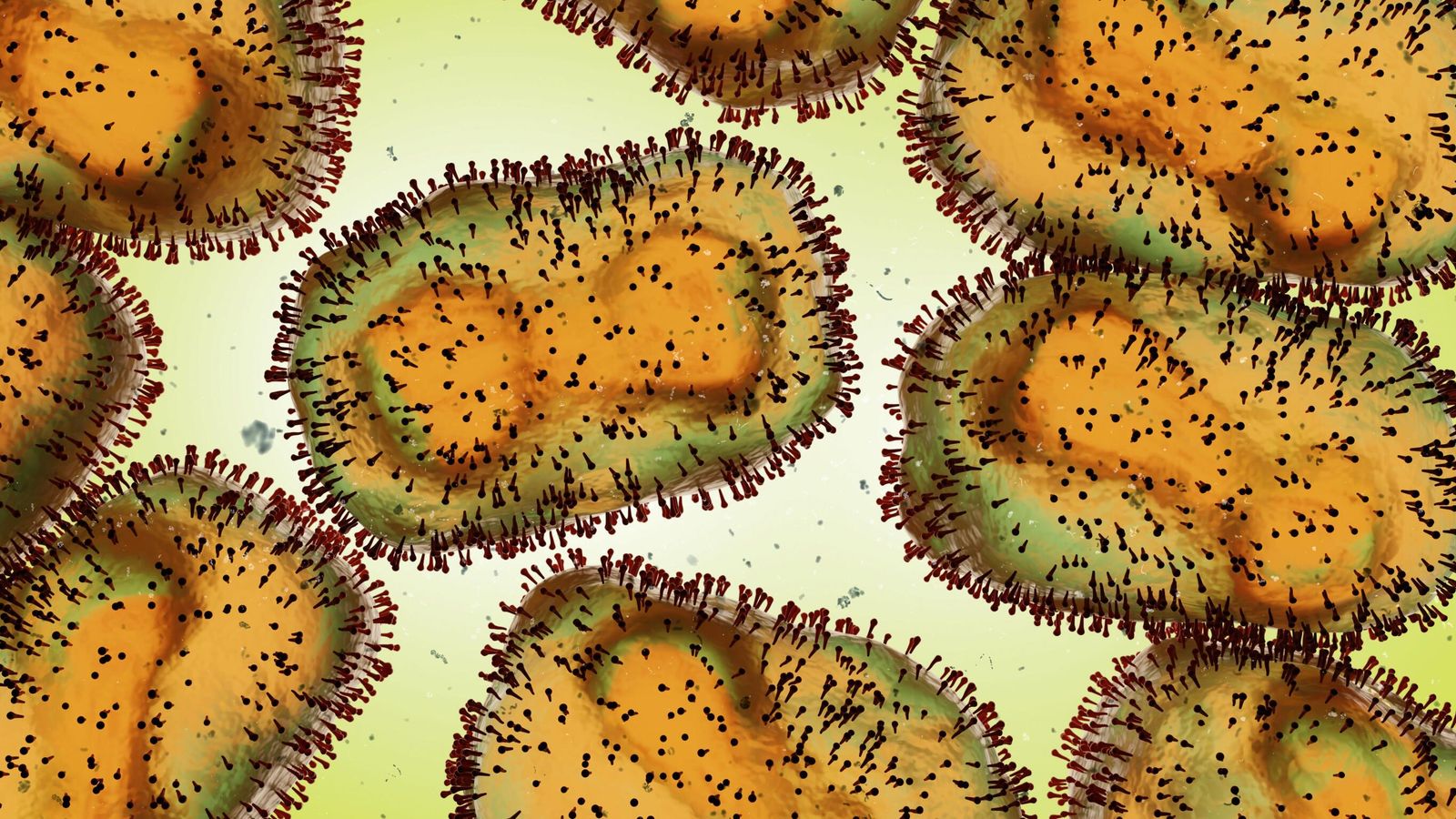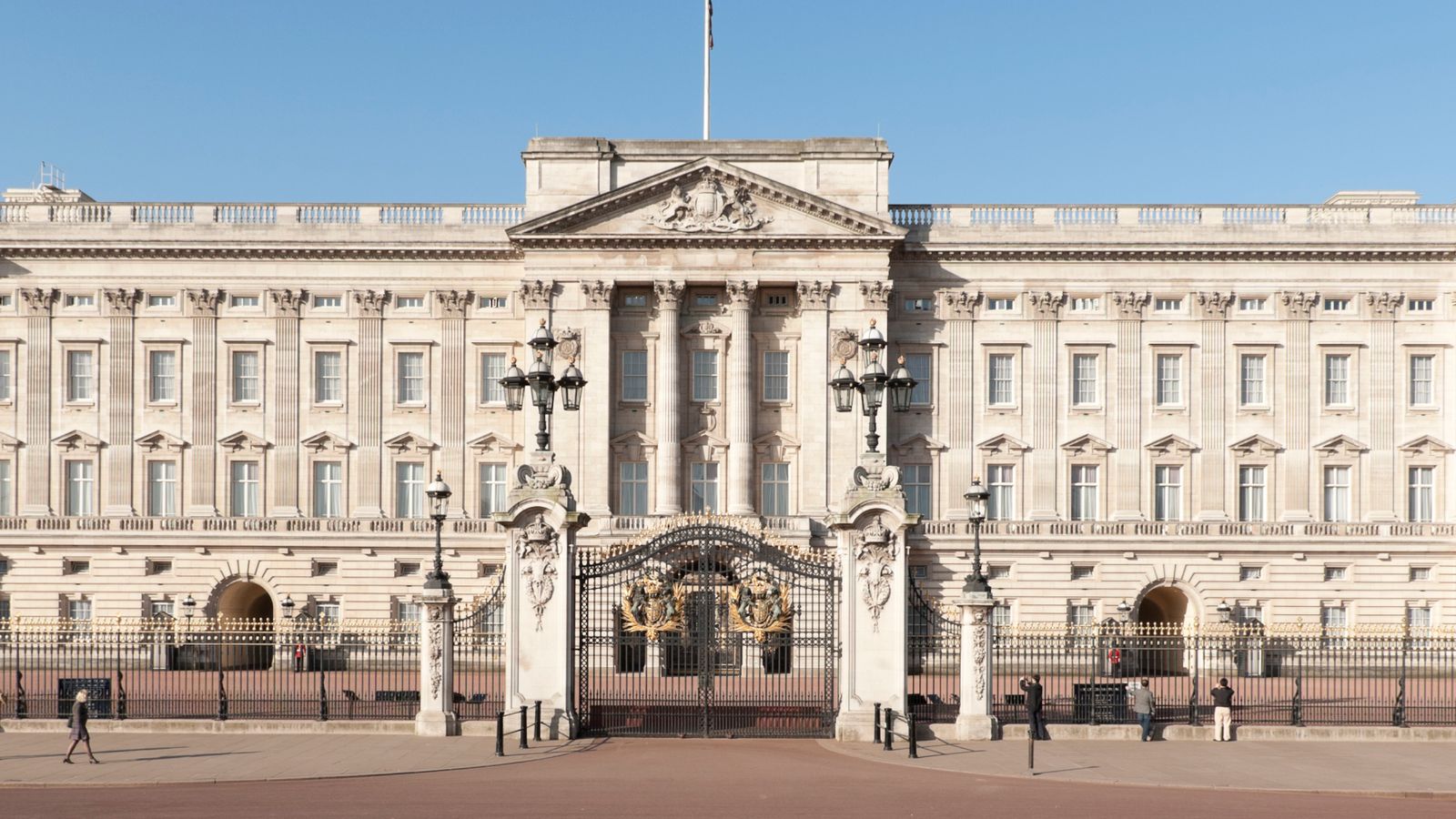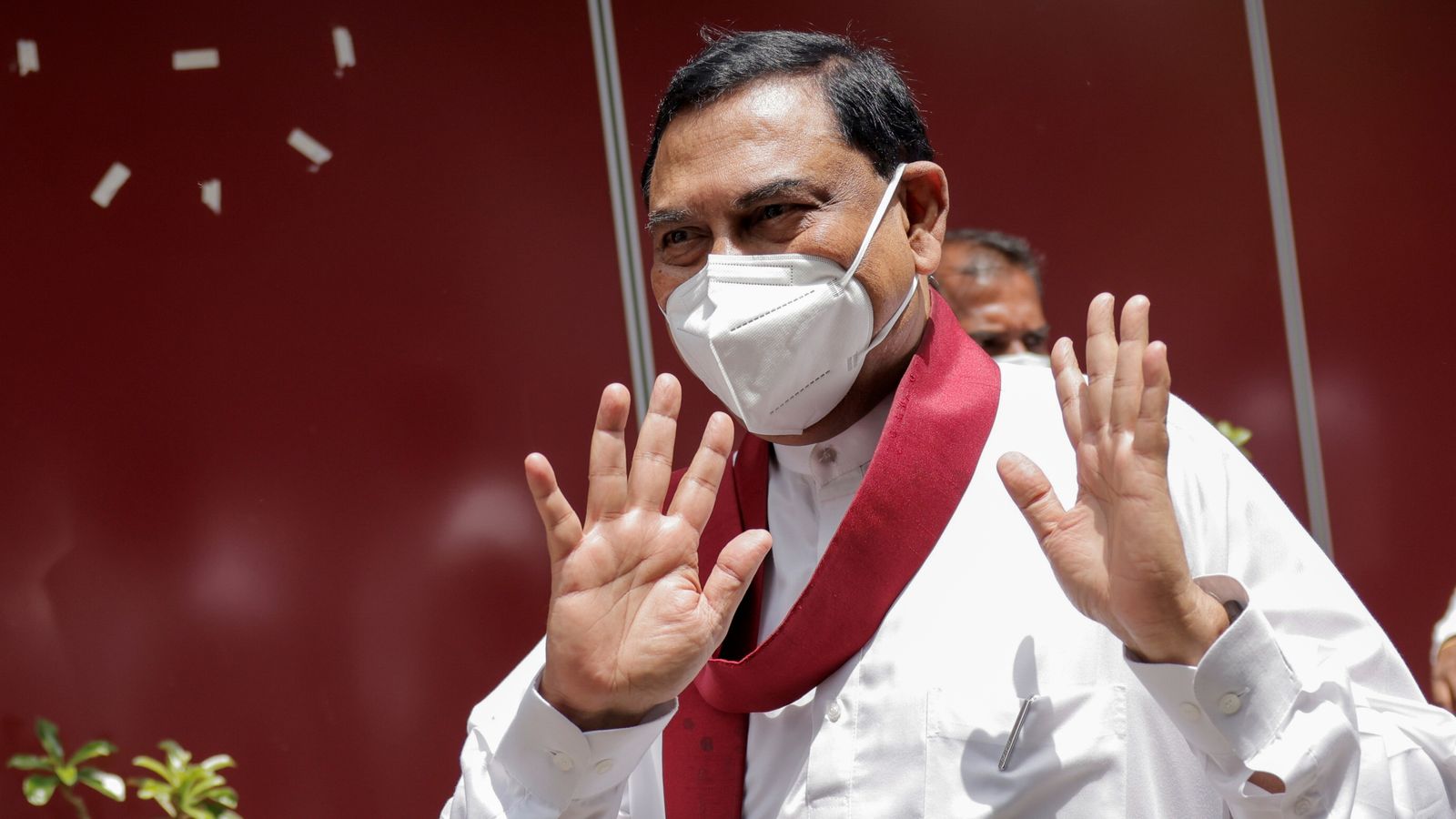The government’s handling of monkeypox has been severely criticised by an alliance of the country’s leading sexual health professionals, who warn the outbreak could last months and risk the virus becoming “endemic if urgent action is not taken”.
In a statement seen by Sky News, the group – including public health directors and leading sexual health charities – warns about a shortage of smallpox vaccines used to protect high-risk groups from monkeypox.
Dr John McSorley, immediate past president of the British Association for Sexual Health and HIV (BASHH), told Sky News: “It looks like we’re in for an outbreak that is going to last for the rest of the year at least before it is averted.
“But that runs the risk, if that happens, unless you get ahead of epidemics actually what you find is that you tend to fall behind.
“They’re always unpredictable but what we’d like to do is be able to have access to more vaccines more quickly and able to distribute it more effectively and all of that requires resource.”
Monkeypox is not a sexually transmitted infection (STI) but can present like one.
In this global outbreak, it is spreading primarily among men who have sex with men.
Monkeypox: Is the response enough?
Monkeypox cases rise to 1,235 as officials issue warning for Pride weekend
‘Sustained transmission’ of monkeypox risks vulnerable groups such as pregnant women, children and the immunocompromised, warns WHO
Suspected patients are presenting at already overstretched STI clinics, putting these services under even more pressure.
Many sexual health clinics have now been forced to close their doors to walk-ins and are triaging all patients over the phone.
Please use Chrome browser for a more accessible video player
A ‘discriminatory injustice’
Dr McSorely added: “It is simply not acceptable to watch monkeypox become endemic in the GBMSM community (Gay, Bisexual and Men who have Sex with Men).
“We can stop that but we need the resources to do so.
“There is rarely the political will and public empathy to prioritise STIs and it is an injustice – dare I say, discriminatory – to watch this unroll in such a passive fashion.
“Not to mention the impact on other core sexual health services which will slowly be further eroded by the online giants.”
The alliance is particularly scathing about the government’s vaccine response.
It says: “The current vaccination rollout is too slow; vaccine access is hampered by lack of co-ordination between the agencies responsible for different parts of the system.
“There are insufficient numbers of vaccines, too few men have been vaccinated, and communication about vaccines to affected communities has been poor.
“We have seen no plans for how, or when, suboptimal access to vaccines will be resolved.”
The UKHSA (United Kingdom Health Security Agency) told Sky News that it had procured enough stock and that any delays in vaccine rollout sit with the NHS.
Read more on Monkeypox:
How do you catch it, what are the symptoms, and how easily does it spread?
People with symptoms should not have sex, new UK guidance says
Dr Mary Ramsay, head of immunisation at UKHSA, said: “UKHSA has procured almost 30,000 doses of the smallpox vaccine Imvanex in response to the monkeypox outbreak and sufficient supplies are available to enable the NHS to begin the rollout of the programme to high-risk groups.”
She added: “We are closely monitoring demand and remain in discussions with the manufacturer so we can quickly procure further doses as required.”
An NHS spokesman responded by saying the NHS is working with local partners to identify and invite those who are eligible for a vaccination to come forward, and over the coming weeks will rapidly grow the number of clinics to make it as quick and convenient as possible to get vaccinated.
NHS accused of ‘failing patients’
The NHS has also been criticised for failing patients who contact the 111 NHS helpline service after presenting with symptoms.
Sexual health worker Harun Tulunay, 35, is back in his east London flat in isolation recovering from one of the worst monkeypox cases seen in this country.
Follow the Daily podcast on Apple Podcasts, Google Podcasts, Spotify, Spreaker
He was rushed to the Royal Free Hospital in North London with a high fever, an early symptom of his monkeypox infection.
Lesions and scabs in his throat meant Harun couldn’t eat or swallow.
He was fed through a tube in his arm. He told Sky News “not getting help from frontline services was very scary”.
Harun called the NHS 111 helpline after having a fever of over 39 degrees for a number of consecutive days.
He told Sky News: “My fever got up to 39.5C and when I called 111, every single time they said ‘call back when you are getting worse’. I was already worse – it was so scary.”
The World Health Organisation has praised recovering patients like Harun for coming forward and speaking about their ordeal on social media.
It may prompt other infected people to come forward and seek help.
Read more: Monkeypox set to be renamed as experts call for a ‘non-discriminatory’ alternative
It might also help destigmatise the disease.
“I am by myself, alone – I don’t have any family here other than a couple of good friends,” Harun added. “It was very scary. I thought I was by myself, ‘I can’t do this alone.’ Not being able to get help from frontline services was very scary.”
The WHO has stopped short of declaring this outbreak a global health emergency.
It says this spread of monkeypox is a crisis, for now.
But that may well change when it reconvenes its emergency committee next week.











